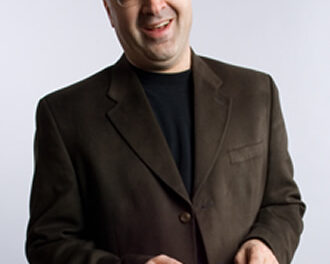Verdi’s Requiem has now been in Charlotte Symphony Orchestra‘s repertoire for a full 50 years since they first took it on at Ovens Auditorium in 1964. I’ve now seen three of CSO’s eight performances of this spectacular work, all at Belk Theater, one with Peter McCoppin at the podium in 1998, another with his successor Christof Perick in 2005, and the current revival with Christopher Warren-Green. All three performances featured the Oratorio Singers of Charlotte, which has been merged with CSO since 1993. Between the most recent CSO versions, a quite handsome account was given at Central Piedmont Community College as part of their springtime Sensoria arts festival in 2011. Perhaps that’s why the piece lost some of its freshness and excitement for me this time around.
With Warren-Green in command, there was plenty of splendor from both the singers and the orchestra. All evening long, the brass excelled with each onset of the “Dies irae” refrain. Trumpets were imposing in launching the “Tuba mirum” section, the trombones had an implacable grimness in the “Rex tremendae,” and timpanist Leonardo Soto invariably added to the thunder. But their collective effect was heightened by Warren-Green’s meticulous attention to the softer moments. He wasn’t the first to deploy musicians offstage at the Belk to enhance immediacy or achieve a distant sound. McCoppin had trumpeters in the lower box seats to amp up the end of the “Dies irae” section, but I would have needed to attend the post-concert discussion to learn where and when Warren-Green deployed his forces. At the beginning, it seemed like some cellists might have been stowed away somewhere out of view, and between the Offertorium and the Sanctum, a sliver of chorus sounded so soft that I wouldn’t be surprised to learn they were also sequestered.
The emphasis on the softer, more tender moments may have helped soprano soloist Michele Capalbo improve her overall impression in her Charlotte debut, for the hushed moments of her climactic “Libera me” were far more appealing than when her vibrato kicked in as she attempted to fill the hall with sound. Back at the Belk for the first time since he sang the role of Lenski so feelingly in Opera Carolina’s 2012 production of Eugene Onegin, tenor Yeghishe Manucharyan had a creamy seductiveness at any volume in his plaintive “Ingemisco,” even if he’d never get a job as a Latin teacher. It was easier to follow the text when mezzo-soprano Nancy Maultsby or bass Burak Bilgili stood up to sing, and they teamed up solidly on the “Lux aeterna.” Beauty of tone isn’t as much of a calling card as dramatic singing for either Maultsby or Bilgili, and on this occasion, I preferred the bass’s intensity in the “Confutatis” to the mezzo’s in the “Liber scriptus.”
Wherever Warren-Green may have stationed them, the Oratorio Singers, prepared by director Scott Allen Jarrett, have never sounded sharper or more nuanced. For the first time, their “Requiem aeternam” refrain – almost chanted in its simplicity – was as memorable as the flashier “Dies irae.” The entire performance took on more circularity as a result of those hushed chants bookending the flow of music. Also helping us to perceive and savor those widely-spaced recurrences was Warren-Green’s decision not to interrupt the evening with an intermission. My wife Sue is a great fan of omitting intermissions (and men hoping to catch more of May 3’s triple-header of NBA game sevens will also be appreciative). Some of the spark that I missed at my third Requiem in the past nine years was not missing for the May 2 night crowd, who lustily applauded the drama, the brass, the orchestra, the soloists, and the chorus. It was an ovation that easily surpassed any I’d seen before for this majestic piece.
The Requiem will be repeated on May 3, in the same venue. See the sidebar for details.











